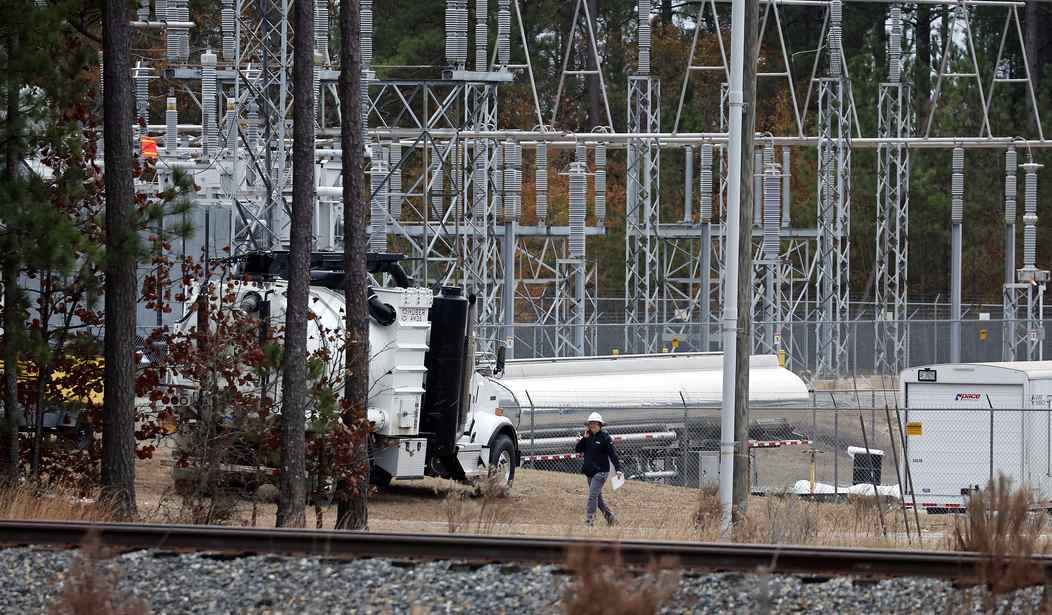One of the bigger mysteries to show up during the holiday season was the series of attacks on electrical substations in Washington state on Christmas day. Thousands of people were left without power just as their festivities were beginning, and the cost of repairs to the facilities is estimated to be in excess of three million dollars. We immediately began speculating on the motive for such attacks. Was this a group of domestic terrorists? Were anarchists trying to shut down society during a holiday period? Might foreign adversaries be involved?
Now two men have been arrested and they are being charged with the attacks. But it appears that terrorism and anarchy were not their intent. The pair reportedly took down the electrical power to the area to shut down security and surveillance systems at one or more local businesses so they could break in and rob them while all of the stores were closed for Christmas. So rather than turning out to be some sort of Machiavellian terror plot, this was a couple of bozos planning a robbery. (Associated Press)
Two men have been arrested and charged with vandalizing electrical substations in Washington state, attacks that left thousands without power over the holidays, and one suspect told authorities they did it so they could break into a business and steal money, U.S. authorities said Tuesday.
Matthew Greenwood, 32, and Jeremy Crahan, 40, both of Puyallup, were arrested Saturday and made initial appearances in U.S. District Court in Tacoma on Tuesday.
A newly unsealed complaint charged both with conspiracy to damage energy facilities, and it charged Greenwood with possession of a short-barreled rifle and a short-barreled shotgun. Cellphone location data and other evidence tied them to the attacks on the four substations in Pierce County, the complaint said.
Greenwood and Crahan are in a lot of trouble. They aren’t just being charged with burglary. Conspiracy to attack energy facilities is punishable by up to twenty years in prison. The pair are also charged with possessing unregistered firearms, which could add more time to their sentences.
The case was reportedly cracked by the FBI and the way they did it should serve as a reminder to anyone who is concerned about digital privacy. While surveillance cameras did capture a couple of images of the two men, they were not clear enough to identify them. So the FBI worked with communications companies to track the locations of all the cell phones that were in the vicinity of the four substations on Christmas day. Only two phones showed up at all four stations around the time of the attacks, so the culprits were identified and put under surveillance until their arrests.
I find myself wondering if the FBI hasn’t attempted to use the same method to solve the attacks in North Carolina. If not, they’ll probably be getting to it presently. Or perhaps they have, but there were simply too many people in the vicinity of the substations that were attacked there to quickly narrow down the list of possible suspects.
The broader mystery of who is behind the hundreds of other attacks on electrical stations still remains. Clearly, the two burglars from Puyallup couldn’t have been responsible for all of them. And it seems unlikely that this is a common method of disabling security systems so would-be robbers can commit heists.
No matter the motive, these most recent attacks have reminded us once again of the vulnerability of the nation’s electrical grid and the significant dangers posed to the country when it fails. Last week, federal regulators ordered a comprehensive review of electrical grid security standards. They will no doubt issue recommendations for beefing up security and preventing these sorts of attacks, which are clearly too easy to pull off currently. But that process will take time and we’ll still have to deal with the question of who will pay for all of these security upgrades at the more than 79,000 electrical substations around the country. It’s not going to be cheap.








Join the conversation as a VIP Member